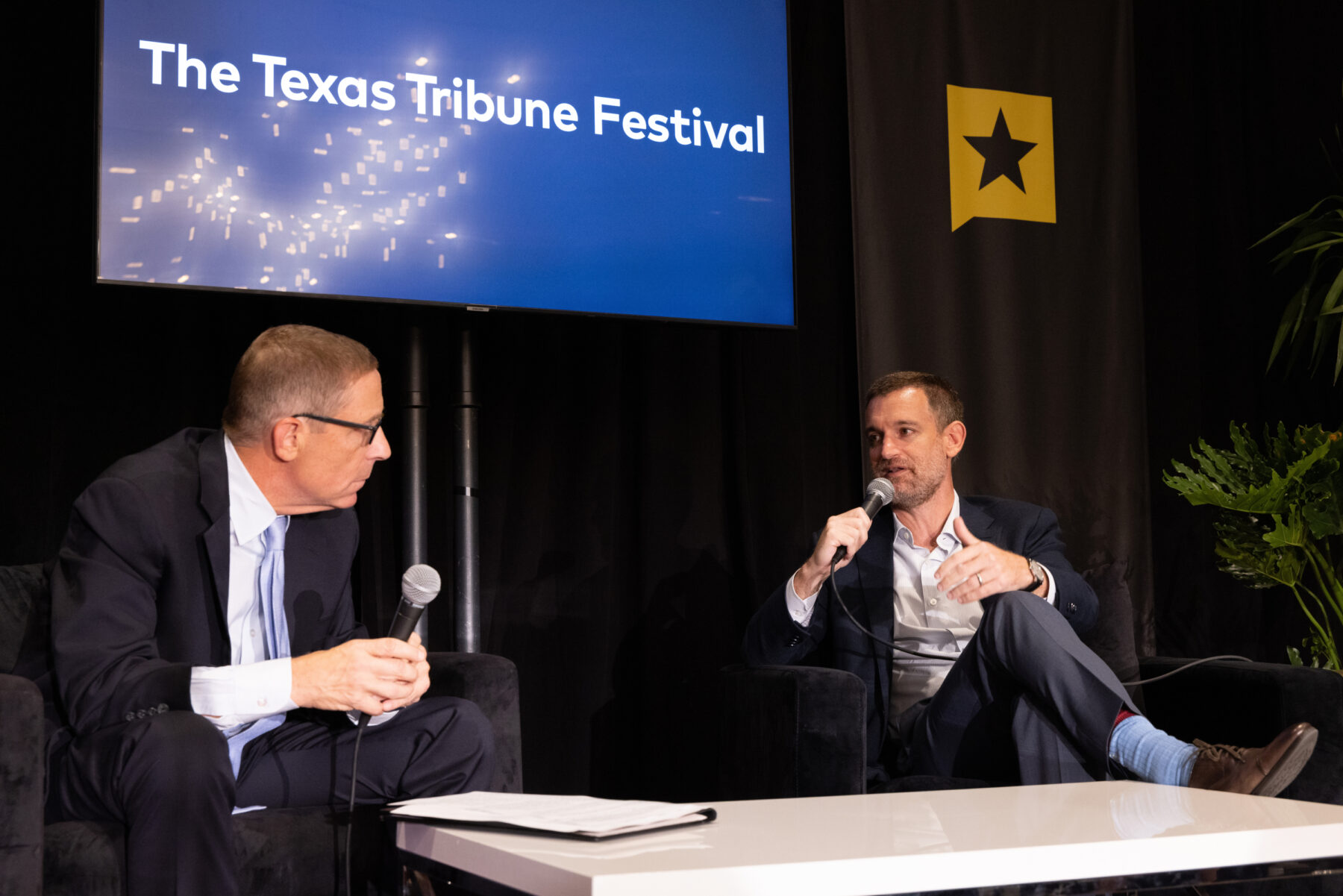This year’s Texas Tribune Festival brought together politicians, journalists, and thought leaders for three days filled with compelling and in-depth conversations. On the main stage, John Arnold, Arnold Ventures’ (AV) co-founder and co-chair, sat down with Texas Tribune co-founder and senior advisor, Evan Smith, to talk about the role of philanthropy in public policy, AV’s infrastructure work, and the near-universal desire among Americans to be charitable. Here are some highlights from the event:
1. People are innately philanthropic.
As the interview kicked off, Arnold reflected on what he learned from his many years of philanthropic work — notably, that the desire to give back is almost universal.
“I actually think that humans are innately philanthropic, and that once you have enough resources to take care of your family, you start thinking about your community,” Arnold said.
The United States has a unique tradition of charitable giving across social and economic groups. The Philanthropy Roundtable reports that Americans voluntarily donate about seven times as much as our friends in Europe, and twice as much as our neighbors in Canada. Part of this is due to our nation’s wealth, Arnold explained, which empowers personal giving.
“Because America is so wealthy, there’s been this culture of philanthropy that’s developed over 100 years with the Rockefellers, and the Fords, and Carnegies,” Arnold said. “But I think what we’re doing is not that different from what most people in our situation would do. How we do it is different.”
2. There are exciting opportunities in taking on high-risk, high-reward issues.
Arnold made a crucial distinction in approaches to charitable giving.
“There are two theories of giving,” he explained. “One is to make relatively safe bets that are likely to pay off. The other is to take chances, knowing that some bets expressly will not pay off.”
The first group often involves direct giving, such as donating to a food bank, contributing to a university, or other important charitable efforts where the benefits are clear and almost guaranteed. These are important causes where many philanthropies are hard at work today.
AV, on the other hand, is willing to take bigger risks as a way to drive meaningful, scalable change, even if it means accepting the potential for failure. Rather than direct giving, Arnold explained, AV identifies broken systems, researches the underlying causes, and advocates for evidence-based policy solutions to solve some of the most pressing problems in the United States.
3. One of the hottest areas of opportunity? Infrastructure.
Given the large audience of Texans attending TribFest, it was little surprise when the conversation turned to AV’s infrastructure work.
“States like Texas that are growing very quickly, we don’t have adequate infrastructure investment for the population we have now,” Smith reflected. “We certainly are not going to have adequate infrastructure investment if we get 10 years out, 20 years out, without a significant change.”
One problem, as Arnold explained, is the misuse of well-intentioned and much-needed regulations in response to the environmental harm inflicted by unchecked industrialization and development. Laws like the National Environmental Policy Act, the Clean Air Act, the Clean Water Act, and the Endangered Species Act ensured that projects simply could not barrel through residential neighborhoods and sensitive areas. However, opponents to new projects have found ways to exploit this legal framework so that it is increasingly difficult to build critical infrastructure.
“These were good laws that had a lot of good impact , but come around 2000 things started to change,” Arnold observed. “One was the courts’ interpretation of some of these laws started to change. […] And opponents became smarter about using those laws to stop projects.”
Now policymakers must revisit this legal framework to ensure the right balance between community needs and our nation’s infrastructure needs.
“How do you balance interest in a system where we need infrastructure, and where we need to respect the desires of community, but the desires and needs of community don’t necessarily match up?” Arnold reflected.
This rebalance is needed not just for infrastructure projects like transmission lines and transportation, but also for housing.
“States need to step in and make sure that each community is meeting the needs of its population,” Arnold said. “Not just those who are living there today, but those who are working in that community and those who want to move into that community in the future as well.”







